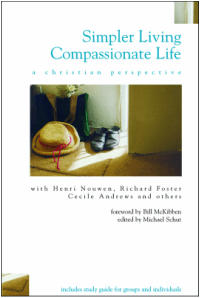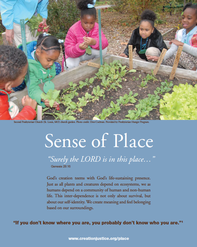To see a general overview of Simpler Living, Compassionate Life click here.
In this section (How Much Is Enough?: Lifestyles, Global Economics, and Justice): “The Big Economy, The Great Economy” by Michael Schut (73-79); “Christian Faith and the Degradation of Creation” by John B. Cobb Jr. (80-89); “How Much is Enough” by Alan Durning (90-98); “Word and Flesh” by Wendell Berry
For simple living to truly be a meaningful and Christian lifestyle, it must not only serve to restore the ecological creation but also those members of the human creation whose lives are impoverished. This section begins to tie together the seemingly disparate sections of our own individual choices and their larger impact on human lives and the economy. The section opens quote from Robert Stivers reminding readers that the Bible, in no uncertain terms, calls believers to seek justice and protect the poor.
Any attempt to contextualize global economy could easily become unwieldy and difficult for the average reader. These essays outline how the habits of the biggest consumers have created an economy that has consequences for those who consume significantly less. It argues that both consumption extremes, over-consumption, and poverty are bad and invites readers to consider a middle path of mindful consumption.
Food is introduced as one example of our unjust over-consumption. In the industrial economy, we’ve created a population separated from the growing process of the food they eat. The supply lines between natural resources to consumer are long. One significant change each of us can make is to commit to shortening the supply lines between us and our food. The section that follows will explore more specific steps that thoughtful consumers may take to disrupt long supply lines.








